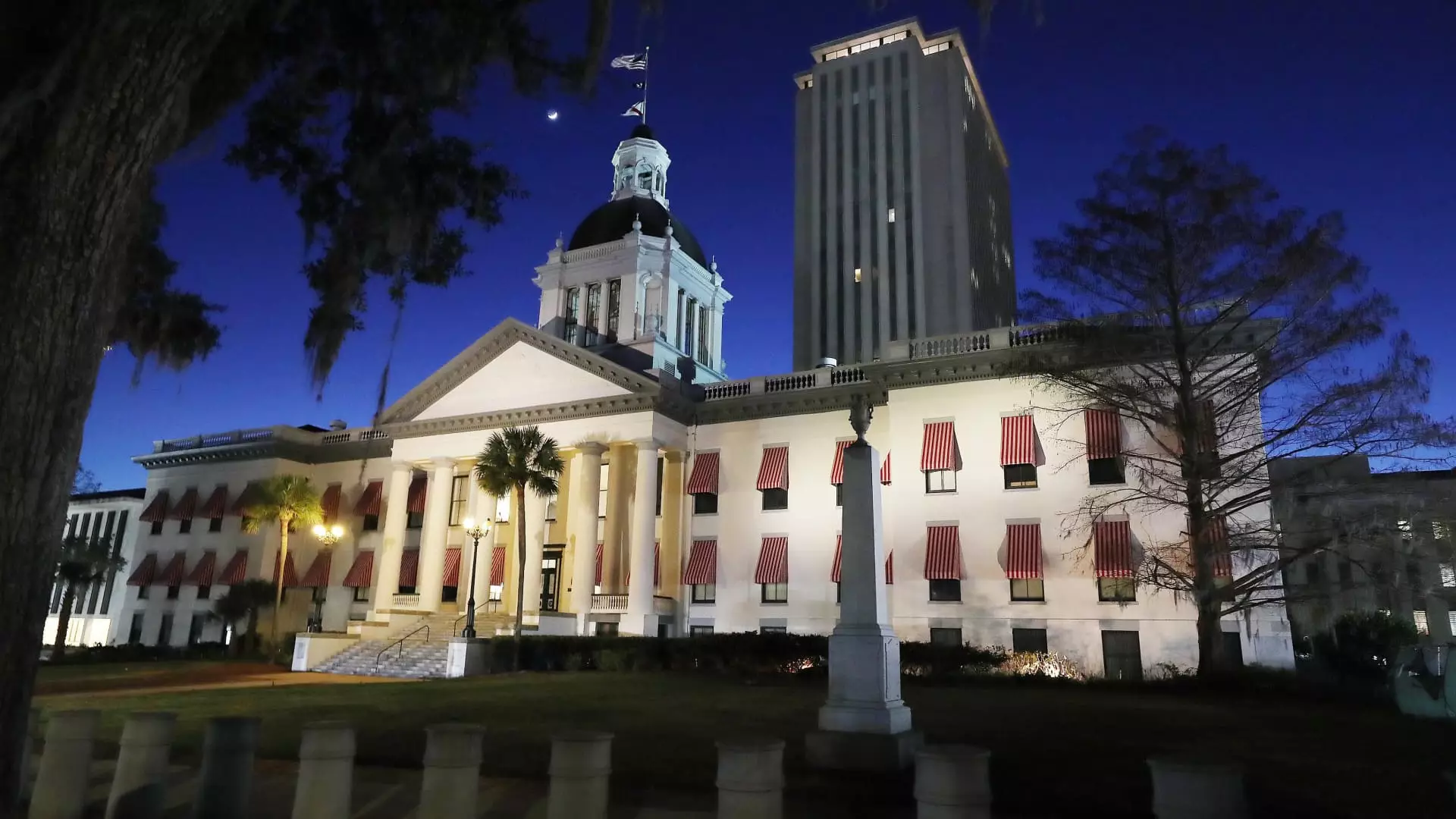The war in Gaza that began after Hamas’ attack on Israel in October has sparked protests worldwide and ignited a response from state legislatures across the United States. As most U.S. states prepare for their reconvening in January, they are gearing up to take both symbolic and concrete actions in response to the conflict. So far, at least eight states that were in session late in 2023 have already condemned the attacks. Legislatures from New Hampshire to North Dakota have introduced measures for the upcoming 2024 sessions, with more expected to follow.
One such state is Florida, where State Senator Lori Berman, a Democrat, sponsored a resolution that unanimously passed last month. Senator Berman, whose worldview was shaped by the lack of aid her ancestors received during the Holocaust, emphasized the importance of taking a stand against evil. She stated, “Silence and indifference are the reason why bad – evil – is able to prevail.”
The strong emotions surrounding the ongoing war in Gaza stem from a long history of conflict in the region. Since October 7th, state legislatures have seen the introduction of approximately 59 Hamas- or Israel-related pieces of legislation. While most are resolutions condemning the attack and expressing support for Israel, others have different aims. In states like Pennsylvania and Texas, resolutions encourage President Joe Biden to facilitate an end to the conflict between Israel and the Palestinians. Meanwhile, a bill in New Jersey seeks to reimburse state residents who were evacuated from Israel during or after the attack.
However, as the war continues, the issue becomes increasingly complex, leading to divisions among Democratic lawmakers. In Michigan, for example, the Democratic-led state House failed to agree on a resolution as Arab American lawmakers refused to support a resolution condemning Hamas and supporting Israel’s response. Another resolution in Michigan calls for the resignation of Democratic U.S. Representative Rashida Tlaib, the only Palestinian American in Congress, due to statements widely seen as calling for the eradication of Israel. Tlaib has already faced censure from Congress based on her remarks.
While condemning the attack is a popular position, the manner in which legislatures do so varies. In Georgia, the House of Representatives approved a resolution condemning the attacks during a special session. Though only two representatives voted against it, 49 abstained from voting. One of those who abstained was Democratic Representative Ruwa Romman, the first Muslim woman elected to the chamber. Romman stated that she would have supported the resolution if it had expressed solidarity with the Israeli people instead of the country of Israel. She argued, “You can’t ask me to stand with a country that displaced my grandparents and is now killing people en masse.”
Beyond expressing condemnation, lawmakers are also grappling with how to handle protests and Palestinian-oriented events at universities. Some universities have faced accusations of tolerating antisemitism. In Pennsylvania, Republican lawmakers defeated legislation to allocate $33.5 million to the University of Pennsylvania’s veterinary school due to criticism and claims of antisemitism. In Indiana, the Republican House Speaker prioritized addressing antisemitism on college campuses in response to the Israel-Hamas war. However, a bill defining antisemitism as religious discrimination and aiming to provide educational opportunities free of religious discrimination failed to pass in the Senate.
In Florida, a measure was introduced that would force public university students supporting Hamas and other designated terrorist organizations to pay out-of-state tuition. The bill’s sponsor, GOP State Senator Blaise Ingoglia, expressed concern over taxpayers subsidizing reduced tuition rates for students who advocate for the destruction of Israel. Although the bill did not advance in a special session, Ingoglia intends to reintroduce it. A similar measure in New Jersey seeks to target university funding, prohibiting support for any event or organization promoting antisemitism or hate speech on campus. The bill’s Assembly sponsor, Republican Alex Sauickie, believes it can garner bipartisan support in a Democrat-controlled legislature.
While some measures restricting speech and support for Israel may face constitutional challenges, there is growing concern that these measures disregard the plight of the Palestinian civilians killed or displaced in the war. Edward Ahmed Michell, the national deputy director of the Council on American-Islamic Relations, expressed skepticism about the constitutionality of such measures, while acknowledging their troublesome implications.
The ongoing war in Gaza has propelled state legislatures across the United States to take action. From condemning the attacks to addressing protests and antisemitism on college campuses, lawmakers are engaging in a range of measures. However, divisions within legislatures and differing approaches to condemnation highlight the complexities surrounding the conflict. As the war continues, it remains to be seen how state legislatures will navigate these challenges and work towards a resolution that promotes peace and justice for all parties involved.

Leave a Reply